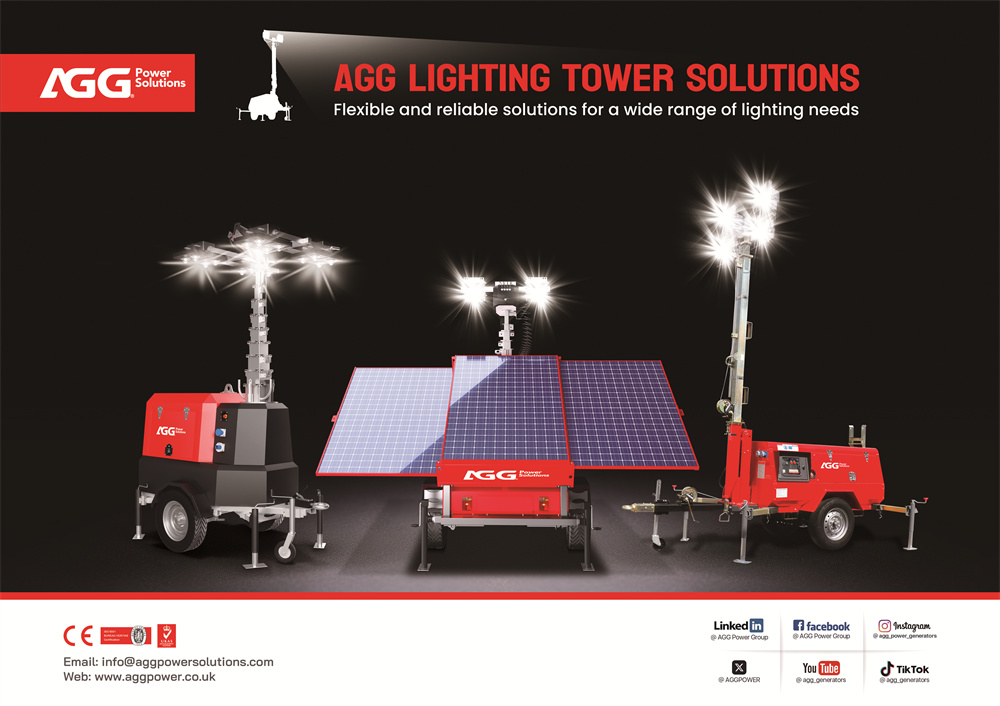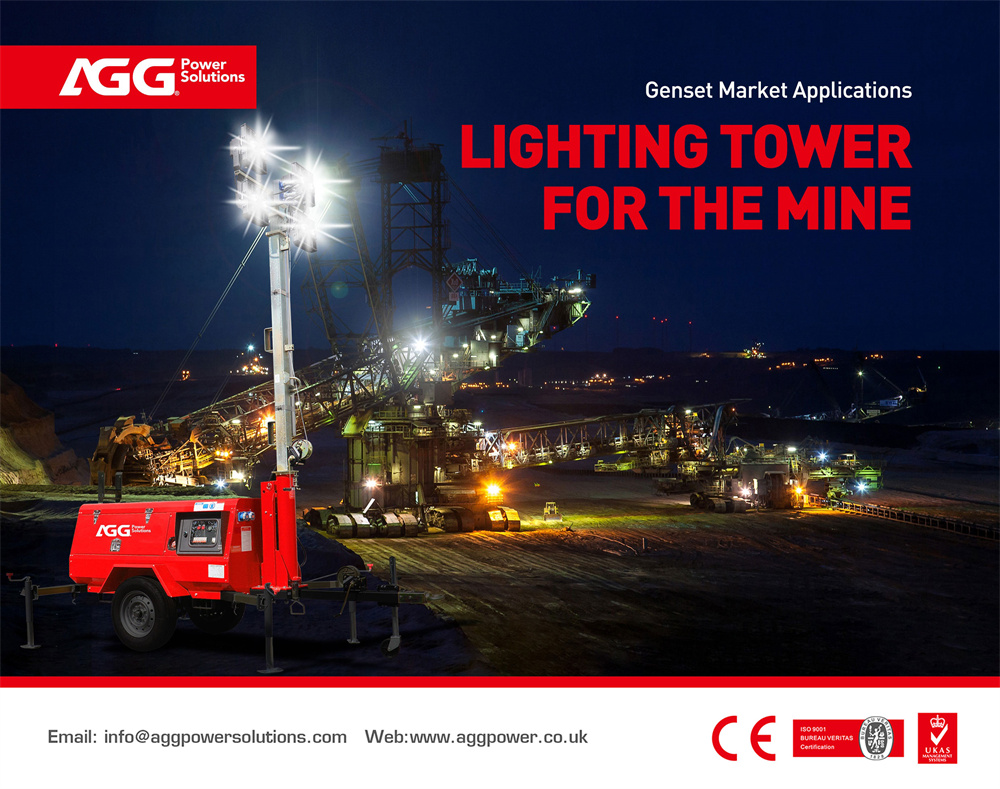Lighting towers are essential for illuminating large outdoor areas, especially during night shifts, construction work or outdoor events. However, safety is paramount when setting up and operating these powerful machines. If used incorrectly, they can cause serious accidents, equipment damage or environmental hazards. AGG offers this guide to help you through the steps of setting up and operating a lighting tower safely, ensuring that you can get the job done efficiently without compromising safety.

Pre-Setup Safety Checks
Before installing your lighting tower, a thorough inspection is required to ensure that the equipment is in good working order. Here is what needs to be checked:
- Inspect the Tower Structure
Ensure that the tower is structurally sound, functional, and free of any visible damage such as cracks or rust. If any damage is found, take care of it before operation.
- Check the Fuel Level
Lighting towers usually use diesel or petrol. Regularly check fuel levels and ensure that there are no leaks in the fuel system.
- Inspect Electrical Components
Check all cables and electrical connections. Ensure that wiring is intact and that there are no frayed or exposed cables. Electrical problems are one of the main causes of accidents, so this step is crucial.
- Check for Adequate Grounding
Ensure equipment is well grounded to prevent electrical hazards. This is especially important if the lighting tower is used in wet conditions.
Setting Up the Lighting Tower
Once the safety checks are complete, it's time to take the step of installing the lighting tower. Follow the steps below for a safe installation.
- Choose a Stable Location
Choose a flat, securely placed location for the lighthouse to prevent tipping. Make sure the area is free of trees, buildings or other obstacles that could block the light. Also be mindful of the wind and avoid setting up equipment in areas that are prone to high winds.
- Level the Unit
Make sure the unit is level before raising the tower. Many lighting towers come with adjustable brackets to help stabilize the unit on uneven ground. Be sure to check the stability of the unit once it is installed.
- Raise the Tower Safely
Depending on the model, the lighting tower can be raised manually or automatically. When raising the tower, the manufacturer's instructions should be strictly followed to avoid accidents. Before raising the mast, ensure that the area is clear of people or objects.
- Secure the Mast
Once the tower has been raised, secure the mast using ties or other stabilizing mechanisms in accordance with the manufacturer's guidelines. This helps prevent swaying or tipping, especially in windy conditions.
Operating the Lighting Tower
Once your lighting tower has completed its security setup, it's time to switch on the power and start operating. Please keep the following safety procedures in mind:
- Start the Engine Properly
Switch on the engine according to the manufacturer's instructions. Ensure that all controls, including ignition, fuel, and exhaust, are working properly. Allow the engine to run for a few minutes to reach operating temperature.
- Monitor Power Consumption
Lighting towers can consume a lot of power. Ensure that power requirements are within the capacity of the generator. Overloading the system could cause it to shut down or even be damaged.
- Adjust the Lights
Place the lighting tower in the desired area to provide even illumination. Avoid shining light into the eyes of nearby people or in areas that could cause distractions or accidents.
- Regular Monitoring and Maintenance
Once the lighting tower is in service, inspect it regularly. Monitor fuel levels, electrical connections, and overall functionality. If any problems occur, shut down and troubleshoot immediately or contact a professional technician.
Shutdown and Post-Operation Safety
Once the lighting job is complete, proper shutdown procedures are essential to ensure the safety of the crew and personnel.
- Turn Off the Engine
Make sure the lighting tower is no longer in use before switching it off. Follow the proper procedure for shutting down the engine as outlined in the manufacturer's manual.
- Allow the Unit to Cool
Allow the engine to cool down before performing any operations to prevent burns from the heat generated by the equipment and to ensure safe operating conditions.

- Store Properly
If the lighting tower will not be used again for some time, store it in a safe location away from adverse weather conditions. Ensure that the fuel tank is empty or that the fuel is stable for long-term storage.
Why Choose AGG Lighting Towers?
When it comes to reliable, efficient lighting towers, AGG lighting towers are the preferred choice for temporary and long-term projects. AGG offers state-of-the-art lighting towers designed for safety, optimal performance, and energy efficiency. They can also be customized to meet specific customer needs.
Superior Service by AGG
AGG is known not only for its high-quality lighting towers, but also for its outstanding customer service. From installation assistance to providing responsive technical support, AGG ensures that every customer gets the help they need. Whether you need advice on safety protocols or help with troubleshooting, AGG's team of experts is ready to assist you.
With AGG lighting towers, you can rest assured that you're using equipment designed with safety and reliability in mind, backed by a team that cares about the success of your operation.
In summary, the setup and operation of a lighting tower involves several key safety measures. By following proper protocols, inspecting your equipment, and choosing a trusted supplier like AGG, you can maximize safety, efficiency, and performance.
AGG water pumps: https://www.aggpower.com/agg-mobil-pumps.html
Email AGG for professional power support: [email protected]
Post time: Dec-30-2024

 China
China
